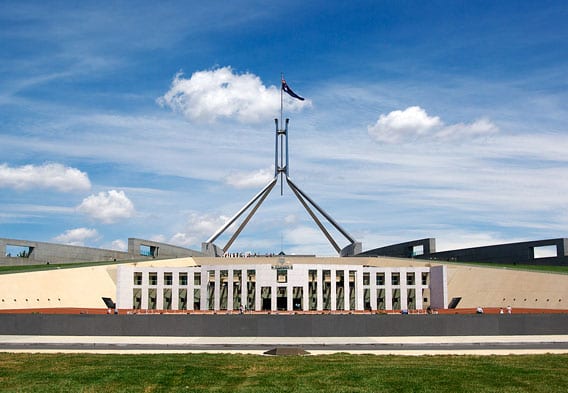Twenty members of Australian community solar group, Solar Citizens, are travelling to the nation’s capital to present a petition to the federal Coalition government asking it not to tax solar power.
The group drafted the petition – which now has 25,000 signatures – two months ago, after the Australian Energy Market Commission released a recommendation to charge higher fees or tariffs for rooftop solar owners, claiming that the cost of uptake was being subsidised by other homeowners.
The group hopes to meet with federal politicians to discuss the petition, namely Coalition environment minister Greg Hunt and resources minister Ian Macfarlane.
The group – which currently boasts a membership of a 50,000 nationwide – argues that solar energy has been made a scapegoat for increased electricity prices, but that the facts show this isn’t accurate.
“The average electricity bill is increasing because of investment in poles and wires and network costs, which accounts for 50-70% of your energy bill,” said Solar Citizens spokesperson Adrian Brown.
Brown says solar is accountable for only “a small portion” of the rise in the cost of household electricity bills – less than 6 per cent – with the majority coming down to “big energy companies … trying to dictate our energy future, attempting to salvage their profit margins”.
Brown notes that nearly one in seven homes (over 1.1 million) in Australia currently have solar on their rooftop; “that’s three million Australians, mostly low-income households and families in regional areas, who have invested over $8 billion dollar to take power over their bills,” he said.
“This investment has translated to saving families nearly $650 million on energy bills while generating 2,800 megawatts of clean energy.”
Geoff Bragg, NSW Chairman of the Solar Energy Industries Association (SEIA) and a solar installer in regional NSW with a decade of experience in the industry, notes that growing solar also has the ability of creating local jobs for Australians. Currently, it employs over 18,000 people domestically.
“Obviously an introduction of extra costs or fees to solar would hamper this growth [of jobs] and stall the growth of solar – and solar industry jobs in Australia.”
But this has not been the message from the federal government. Recently, Prime Minister Tony Abbott took the opportunity while talking with Alan Jones on Sydney radio, to suggest, again, that renewables were driving up power prices.
“One of the things that we’ll be looking at is the impact of renewable energy on power prices because not only is the carbon tax adding about 9 per cent to everyone’s power bills … renewable energy targets are also significantly driving up power prices right now”.
Brown hopes that Solar Citizens’ trip to Canberra will highlight “positive measures [that] need to be in place to ensure the growth of solar in Australia, which reduces household energy bills, provides jobs in our communities and allows families to do their part to help the environment. Obviously, implementing extra fees or costs for solar would be the antithesis of this.”








